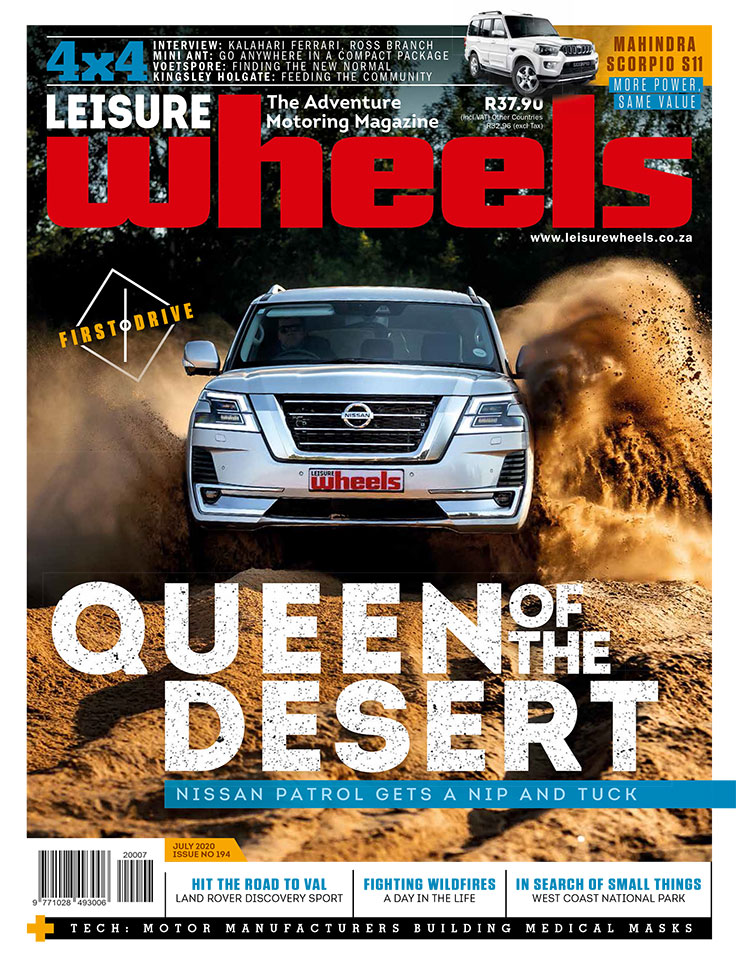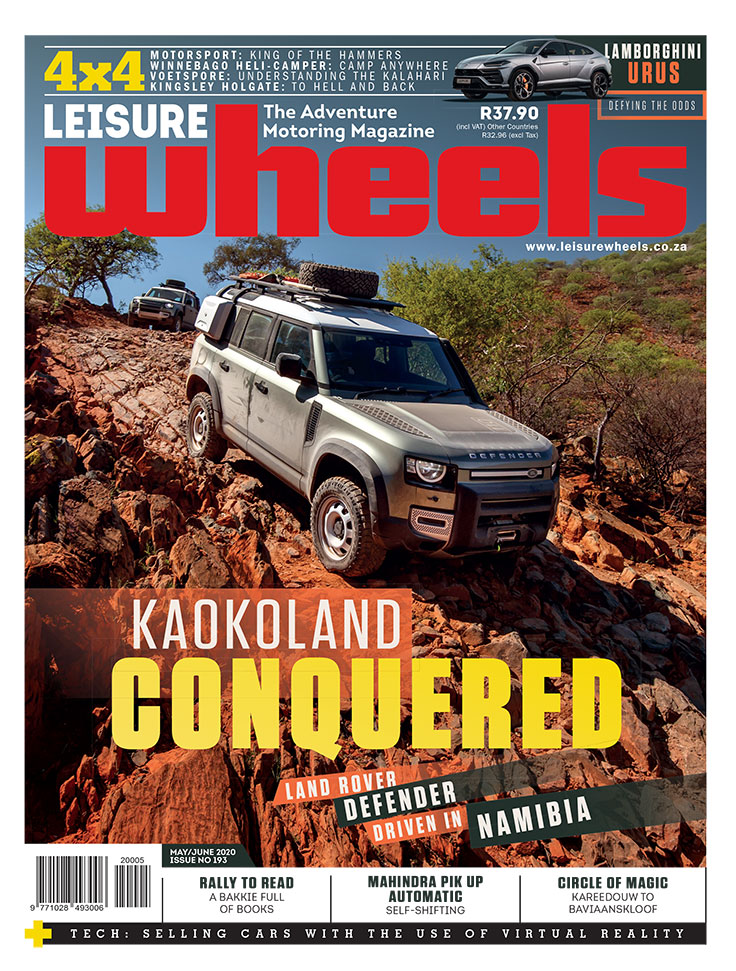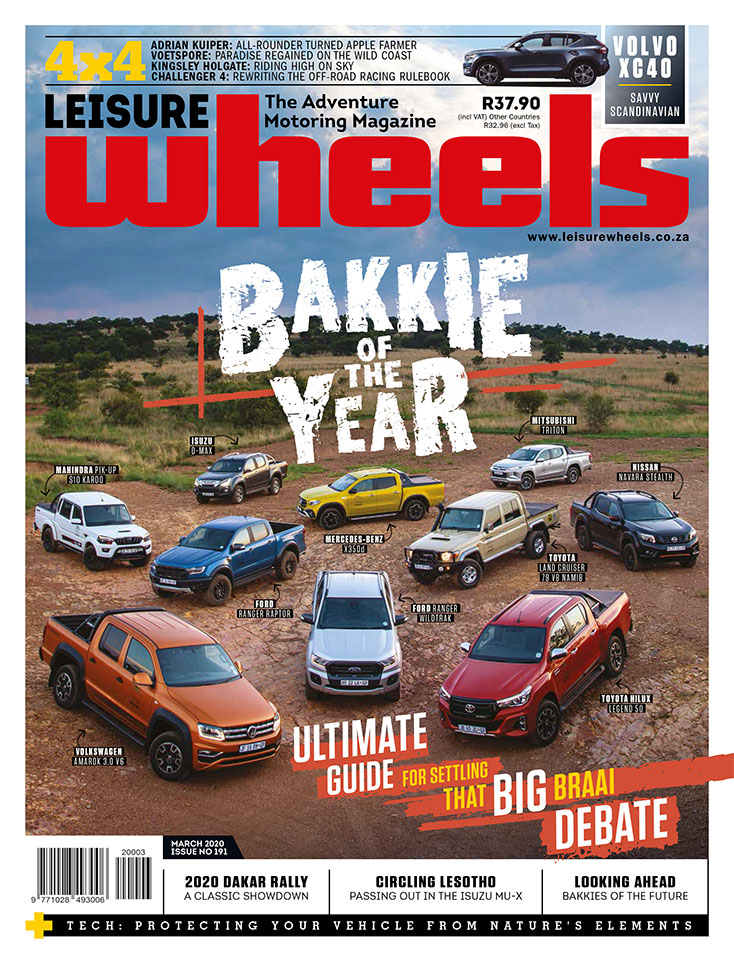Under threat
Did you know that your 4×4 is killing polar bears while you drive? Did you know that your 4×4 is the very reason the polar ice caps are melting and that the hole in the ozone layer is getting larger?
This is what some “green” activists would have us believe. It’s a weight that owners of especially bigger 4x4s are consciously being made to carry. And it’s a weight inequitably imposed on us by people who eat rabbit food and walk around in floral-print shirts.
Now it seems our government has also decided to mount a soapbox and declare war on the 4×4.
First it imposed a ridiculous emissions tax that obviously hit the 4×4 segment the hardest. In theory this “tax” would have worked fine in a first world environment, where there is a collective move to reduce emissions. But here, in our third world motoring culture, it only serves to saturate government’s bank accounts.
The day before this was written, Gauteng’s controversial e-toll farce received the green light in the National Assembly in Cape Town. And, along with this news, the price of petrol increased by 81c a litre!
It was just the other day that the fuel price broke through the mind-boggling and unthinkable benchmark of R10 a litre. And look where we are now – more than R13 a litre! And so the viability of the big, “gas guzzling” 4×4 has increasingly come under threat. Buying the actual vehicle is one thing; keeping it running after everyone has added their rates and taxes and toll monies, well, that’s another matter.
So, what are the other alternatives? Hybrids, running electric motors in conjunction with petrol or diesel engines, have been available for some time. They include some SUVs, but no hardcore 4x4s yet.
More recently, Nissan SA began a process of introducing its all-electric Leaf into the local market. This hatch is already on sale overseas and Nissan recently began exposing the technology to local consumers. The hatch uses an 80 kW and 280 Nm electric motor, powered by a 24 kilowatt-hours lithium ion battery.
Although the Leaf’s range of around 150km per charge, depending on driving conditions, limits its usability in typical South African conditions, it nevertheless represents a major leap forward for the all-electric vehicle. For example, it can sprint from 0-100km/h in less than 10 seconds and performs very much like a petrol- or diesel-powered car of the same size.
Amazing as the all-electric technology may be, many car manufacturers are apparently concerned that, in the long run, it will be too expensive to produce and maintain. Profit margins just don’t add up in an all-electric environment.
Now, after taking a back seat for years, it seems that hydrogen technology is very much back in the spotlight.
The Economist recently reported that Toyota and BMW had established a new alliance through which the two major companies will cooperate in hydrogen fuel cell research. This announcement, says The Economist, follows just days after Ford, Daimler and Nissan said they would work together to bring their own fuel cell technology to the international marketplace by 2017.
The fuel cell system is said to be the most common interpretation of this technology. Essentially, it converts the chemical energy from hydrogen into electricity through a reaction with oxygen or another oxidising agent. At face value it seems brilliant.
Hydrogen is the most abundant element in the universe. So no longer will the price of a barrel of oil in the Middle East determine the price of fuel.
Instead, the world will enjoy emissionfree motoring without the need to plug a battery into a 220V outlet, and enriching Eskom even further.
This technology is not without its problems, of course. The hydrogen still has to be produced through a chemical process, requiring the use of energy.
However, with many of the world’s top car companies now pooling their resources to get the technology production ready, hydrogen-powered cars could land up on our showroom floors inside the next 10 years.
Until then, the best thing to do is savour the sights and sounds of the internal combustion engine while we can. Its days are truly numbered.








